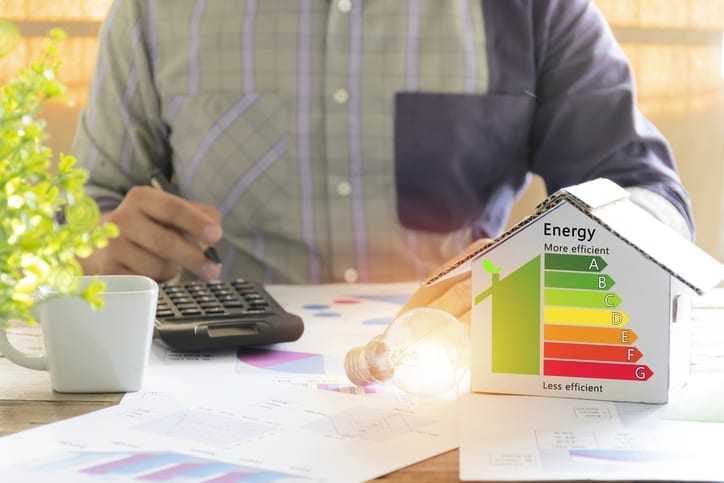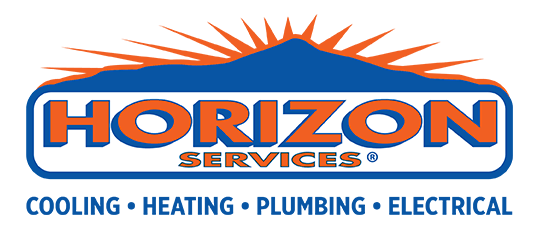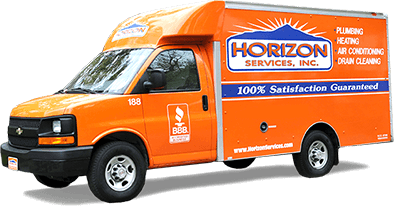
A Kilowatt Saved Can Be a Dollar Earned!
There’s no doubt that we are living in an energy, ecology and cost-minded era. with energy prices rising across the nation, there has never been a better time to consume less energy and use energy wiser.
Your home’s major energy users — the heating system, the air conditioning system, refrigerator & freezer, washer & dryer, hot water heater, lighting and appliances — all contribute to your overall utility bill. Here are 101 simple tips that will help you use these devices and equipment more efficiently, reduce your energy consumption and save significant money on your monthly energy bill. Some of these tips can significantly slash your utility bills. Others may only reduce by a few pennies, but you know what they say: take care of the pennies and the dollars take care of themselves!
Your Heating System:
- During the winter months, set your thermostat at 68 degrees F during the day and 60 degrees F at night. You can save 3 percent on your heating costs for every degree you reduce the temperature below 70 degrees F for the entire heating season.
- Clean or replace furnace filters monthly. Clean filters will help your heating system run more efficiently and improve your home’s indoor air quality.
- Inspect windows and ductwork for any air leakage. If you do feel air leaking at duct joints, use duct tape to seal them. Winterize windows with weather stripping (for all movable parts) and caulk (for non-moving parts). Eliminating these leaks can reduce heating costs up to 10%.
- Use kitchen, bath and other ventilating fans sparingly. Leaving them on too long will suck away a tremendous amount of household heat. Turn them off when their job is complete.
- Turn down your thermostat at night or when you’re away for more than four hours during the day. Do not turn off your heating system entirely as this may cause pipes to freeze.
- Keep heating supply registers and cold-air return registers clear of draperies and furniture to maintain proper air circulation.
- Keep drapes and shades open during the day to let the sunshine in; close them at night.
- Dust or vacuum radiator surfaces frequently. Dust and grime impede the flow of heat.
- Keep lamps, TVs and other electrical appliances away from the thermostat. Heat from these appliances is sensed by the thermostat and could cause your furnace to shut off too soon and restart frequently.
- Dress warmly to help retain body heat. Wear closely woven fabrics. Dressing in layers retains more heat than a single thick piece of clothing. If you’re still cold when the thermostat is set at 65°F this winter, you’re not wearing enough clothes.
- Keep garage doors closed in winter. An open garage door is just a giant hole that sucks warm air out of your home and lets cold drafts in.
- When having company, turn down the thermostat before your guests arrive. Their collective body heat will add to the room temperature.
- Plant evergreen trees on the north side of your home to block winter winds.
- Install storm windows and doors; this can reduce your winter heat loss by up to 20%.
- On sunny winter days, open curtains on south-facing windows to help heat your home.
Your Air Conditioning System:
- Don’t over-cool. The ideal thermostat setting is between 75°F and 78°F. Every degree you raise your thermostat can result in a 5% savings on the cost of cooling your home.
- Keep lamps, televisions and other heat sources away from the air conditioner thermostat. Heat from these sources may cause the air conditioner unit to run longer than it should.
- Make sure that no furniture or other obstacles are blocking ducts or fans. This will enable cooled air to circulate more freely.
- When selecting a central air conditioning unit, be sure to choose one that is sized appropriately for your home and uses the minimal amount of electricity to complete its task. Air conditioners with high Seasonal Energy Efficiency Ratios (SEERs) – such as 13.0 SEER and above – provide the greatest energy efficiency.
- Install a ventilating fan in your attic or in an upstairs window to help dissipate hot air and cool down your home.
- Don’t set your thermostat at a colder setting than normal when you turn your air conditioner on. It will not cool the room any faster, but it will use more energy.
- Use a ceiling fan in conjunction with your air conditioner to spread cooled air to other rooms.
- Clean or replace air conditioning filters monthly. A clean air filter improves system efficiency, which leads to energy savings.
- Close all windows and outside doors when the air conditioner is operating.
- Clean the outside air conditioner condenser coil once a year. Turn off the unit and spray the coils with water at a low pressure to remove dirt, dust, leaves and grime.
- Use duct tape to seal the cracks between each section of an air duct on your central air conditioning or forced heating system.
- Close your blinds, curtains and shades during the hottest part of the day. Keep out the daytime sun with vertical louvers or awnings on the outside of your windows.
- Keep lights low or off when not needed. Electric lights generate unnecessary room heat.
- Plant shade trees strategically around your home. Properly selected and planted shade trees can save up to $80 annually on the average electric bill.
- Apply sun-control or other reflective films on south-facing windows to reduce solar heating of your home’s interior.
- Take brief, cool showers this summer to keep humidity out of the air and reduce the load on your AC.
Your Fireplace:
- Fireplaces can lose more heat than they generate. Make sure that they are airtight.
- If you have a simple open-masonry fireplace, consider installing a glass screen, a convective grate, a radiant grate or a fireplace insert. They’ll help cut down on the loss of warm air through the fireplace chimney.
- Keep your fireplace damper closed whenever there isn’t a fire in the fireplace.
Your Hot Water Heater:
- Turn down the water heater temperature dial to 130 degrees F or less; 120 degrees F is recommended for most home hot water needs.
- When you need a new water heater, purchase a unit with a high Energy Factor (EF) rating. EF ratings such as those of 91 and above correspond with greater efficiency. The higher the rating the more efficiently the unit will operate.
- Insulate the outside of your electric water heater with an insulation blanket to reduce heat loss; this can easily save you $10 to $20 per year.
- Turn down your hot water heater to its lowest setting when you go on vacation or are away from the house for an extended time period.
- Drain a bucket of water out of the hot water heater once a year to remove sediment and dirty water and improve heating efficiency.
Your Dishwasher:
- When buying a dishwasher, look for an energy-efficient model with air power or overnight dry setting. These features automatically turn off the dishwasher after the rinse cycle. This can save you up to 10% of your dishwashing energy costs.
- Scrape dishes and rinse with cold water before loading them into the dishwasher. Avoid using the dishwasher’s pre-rinse cycle.
- Be sure your dishwasher is full but not overloaded when you turn it on.
- Don’t use the “rinse-hold” on your machine for just a few soiled dishes. It uses several gallons of hot water each time you use it.
Your Refrigerator and Freezer:
- Vacuum the coils on your refrigerator at least every three months. Dust and dirt build-up makes the refrigerator work harder and uses more energy.
- Set the refrigerator thermostat at 38 degrees F for fresh food compartments and 5 degrees F for the freezer compartment.
- Regularly defrost your freezer. Frost buildup increases the amount of energy needed to keep the refrigerator at its proper temperature. Never allow frost to build up more than one quarter of an inch.
- Don’t place your refrigerator or freezer in direct sunlight or near the stove.
- Make sure your refrigerator door seals airtight. Test them by closing the door on a piece of paper or dollar bill so it is half in and half out of the refrigerator. If you can pull the paper or dollar out easily, the hinge may need adjusting or the seal may need replacing.
- Keep the refrigerator door closed. Each time you open the refrigerator, up to 1/4 of the cold air inside can leak out. Stop making unnecessary trips to the fridge.
Your Kitchen:
- Boil water in a kettle or covered pan; the water will boil faster and use less energy.
- Keep range-top burners and reflectors clean. They will reflect heat better and you will save energy.
- Match the size of the pan to the heating element. More heat will get to the pan, and less will be dissipated.
- Turn off the stove or oven five to 10 minutes before cooking time is up and let trapped heat finish the cooking.
- Avoid opening the oven door repeatedly to check food while it cooks. This allows heat to escape and requires more energy to complete the job. Use a timer to let you know when food is ready.
- Use small electric cooking appliances (such as portable grills and skillets) for small meals rather than the stove or oven.
- Don’t preheat the oven unless absolutely necessary and then for no more than 10 minutes.
- Avoid using the broiler as much as possible; it uses a great deal of energy.
- Thaw frozen foods thoroughly before cooking (Please Note: Horizon Services does not provide service to thaw a frozen pipe).
- Barbecue outside as much as possible during warm weather months.
- Cook during cooler hours (early morning and late evening) whenever possible.
- Use a microwave to cook meals whenever possible; it uses about half the energy of a conventional oven.
- Use crock pots and slow cookers; they can be as much at 75% more energy efficient than stoves and ovens.
- Use cold water rather than hot to operate your garbage disposal. Cold water also helps get rid of grease by solidifying it, so it can then be ground up and washed away.
- After using your oven, leave it open a crack to let warm air escape into your kitchen. (Don’t do this if you have children or pets around).
Your Washer, Dryer and Laundry:
- Wash clothes in warm or cold water instead of hot water. Rinse in cold water; this can save you about $50 per year.
- Put a dry towel in the dryer with each load of wet clothes. The towel will absorb dampness and reduce drying time, thus saving energy and money.
- Fill washers and clothes dryers but do not overload them.
- Clean the lint screen after each load of laundry and check the exhaust regularly. Clogged, dirty lint screens and exhausts can increase drying time and energy usage.
- Dry your clothes on an outside clothesline whenever possible.
- Remove clothes from the dryer and hang to dry while they are still damp. They’ll dry without wrinkles, thus avoiding the need to iron.
- Avoid ironing clothes. Wear wrinkle-free clothing and save yourself time, money, and energy.
- Use a front-loading washing machine; they require less water and energy than other washing machines.
- Use less detergent and skip the extra rinse cycle on your washing machine to save water and time. If your clothes need to be rinsed twice, you’re using too much soap.
Your Bathroom:
- Take showers, not baths. A five-minute shower uses half the hot water that a bath would use.
- Select a shower head with a flow rate of 2.5 gallons per minute. This saves a considerable amount of hot water and the energy used to produce it.
- Install aerating, low-flow faucets and shower heads.
- Don’t let water run while shaving; this wastes hot water.
- Repair leaky faucets immediately. A leaky faucet can waste gallons of water in a short time.
Your Lighting and Appliances:
- Replace incandescent light bulbs with more efficient, compact fluorescent lights (CFLs). Though more expensive, they use much less energy, produce more light and last up to 10 times longer than incandescent bulbs.
- Use halogen light bulbs for outdoor lighting (spot lights, flood lights, security lights). They use about 25% less energy than traditional incandescent bulbs.
- Turn off lights in any room not being used. Turn on outdoor lights only when needed.
- When using incandescent bulbs, use the lowest wattage possible or convenient. In many cases a lower wattage bulb can be substituted for the one currently being used.
- Light-zone your home to save electricity. Concentrate lighting to areas where needed for reading, work and safety. Reduce lighting in little used areas.
- Install lighting dimmer switches; they save energy by reducing the lighting intensity in a room.
- Buy LED holiday lights. LED lights use 90 percent less energy than standard incandescent bulbs.
- Use one large bulb instead of several small ones in rooms where bright light is needed.
- Keep light bulbs dust-free. Dust on bulbs could be reducing your light output by 50%.
- Use timers, motion detectors, heat sensors or photocell controls for light fixtures when possible.
- Use satin or semi-gloss paint on your walls will reflect more light and allow you to use lower watt bulbs.
- Put your computer to sleep instead of using a screen saver.
- Laser printers use an incredible amount of energy. Switch to ink-jet printers.
- Get rid of your CRT monitor. CRT monitors are energy hogs. Get an LCD monitor for your computer instead.
- Dump your desktop computer. Laptops use a fraction of the electricity that desktop use.
- Unplug any appliance that’s going unused for long or won’t to be used in the near future. Many plugged-in appliances, such as clocks, radios and TVs, can actually draw electricity — even if they are not turned on.
- Replace old, inefficient appliances with new Energy Star appliances.
Your Insulation:
- Insulate your attic floor or top floor ceiling to a minimum of R-49. An insulation material’s R-value indicates the resistance of an insulation material to heat flow; the higher the R number, the more effective the insulating capacity.
- Insulate heating and cooling ducts in unheated or uncooled areas.
- Don’t let air seep into your home through attic doors. Check the door to make sure it is well insulated and weather stripped – otherwise, you’ll be wasting fuel to heat or cool the attic.
- Test windows and doors for air tightness. Add weather stripping and caulk where necessary.
- If you have a crawl space, inspect it regularly to ensure that the insulation inside is dry. When insulation gets wet, its optimal effectiveness is significantly reduced. Be sure to find the source of the moisture and replace any damaged insulation.
- The more insulation you have, the better! If you only have six inches of insulation in your attic, try doubling it to twelve!
Horizon Services: The only full-service plumbing, heating, air conditioning, drain cleaning and sewer and water line replacement company in Delaware, Southeastern Pennsylvania, Gloucester, Camden and Burlington County New Jersey and Northeastern Maryland that guarantees on-time service, up-front pricing and the job done right and clean the first time!


